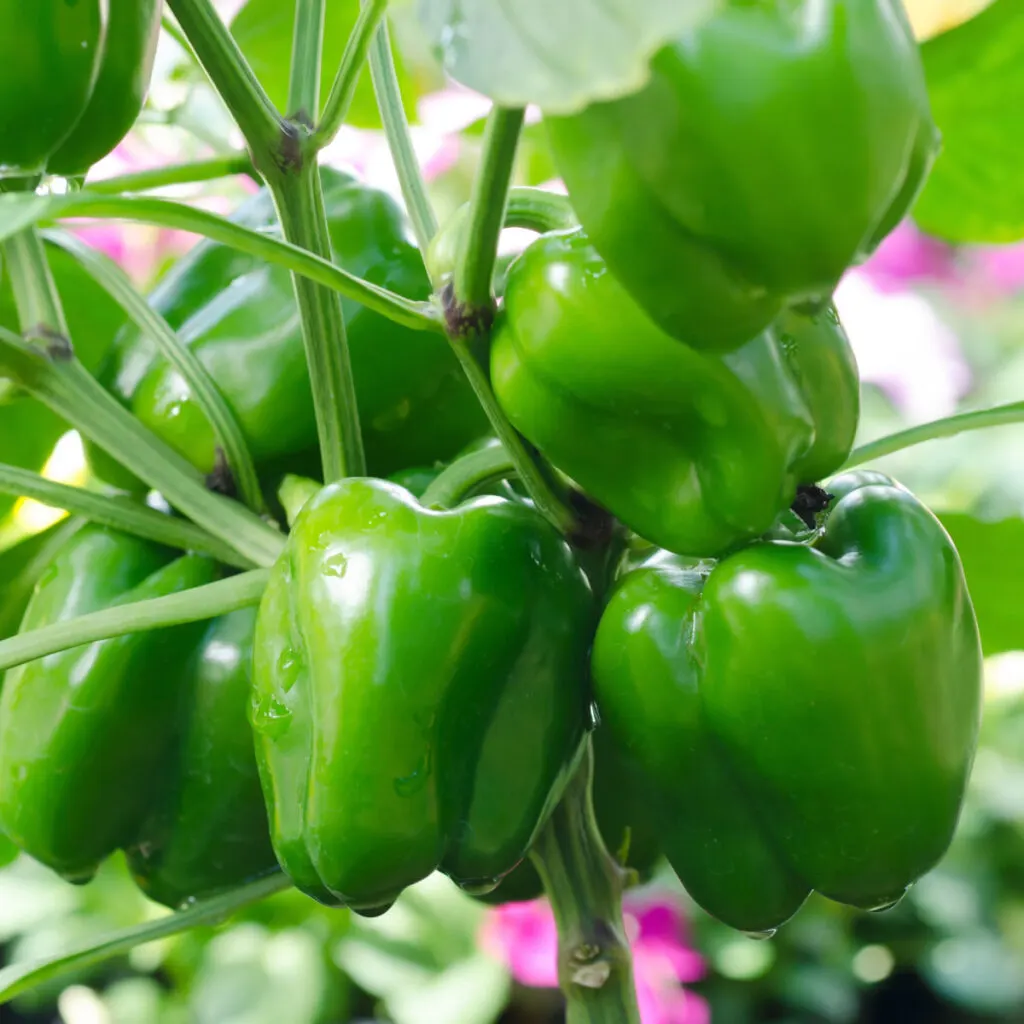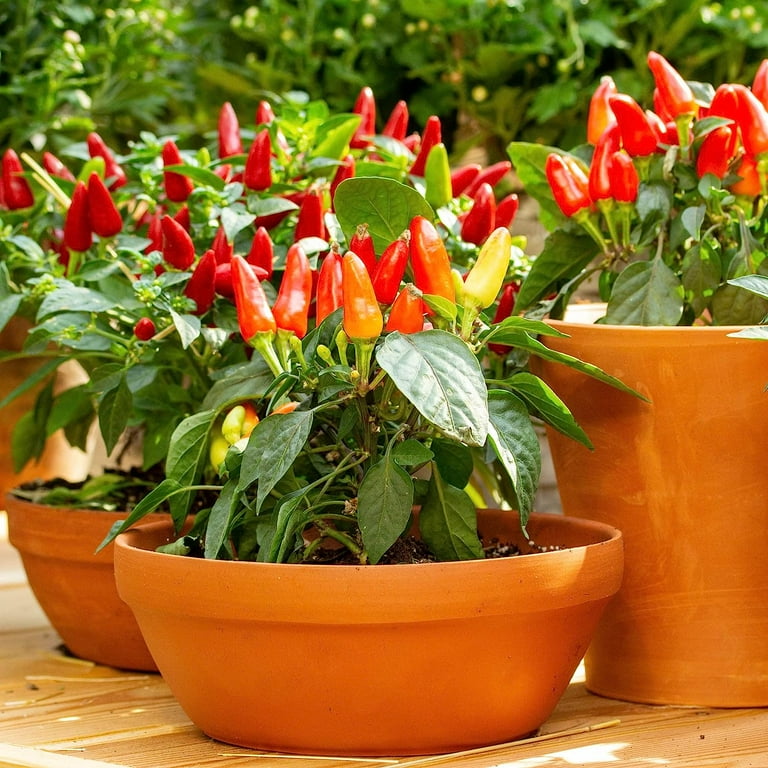Check Out the Best Fertilizers for Peppers and Enhance Your Yard's Yield
Organic Vs. Synthetic Fertilizers: Which Is Best for Supporting Healthy And Balanced Pepper Plants?
In the world of supporting healthy pepper plants, the option between organic and artificial plant foods stands as a pivotal choice with far-ranging ramifications. While both choices goal to give crucial nutrients to sustain plant development, the subtleties of their effect on the dirt, plant health, and the setting spark an argument that mirrors throughout the horticulture area. Comprehending the distinct benefits and prospective risks of each plant food kind is critical for pepper cultivators looking for to optimize their yields while preserving an eco-conscious and lasting method.
Advantages of Organic Fertilizers
Organic plant foods provide an environmentally-friendly and sustainable strategy to nourishing pepper plants, giving necessary nutrients without the use of artificial chemicals. These natural fertilizers are originated from organic resources such as compost, manure, bone dish, and algae, promoting dirt health and wellness and biodiversity. Unlike artificial fertilizers, natural options launch nutrients slowly, making certain a balanced and steady supply for pepper plants to grow.
One considerable benefit of organic plant foods is their ability to boost soil structure and water retention. By boosting soil health and wellness, organic plant foods promote helpful microbial task, which aids in nutrient uptake by pepper plants. In addition, natural fertilizers minimize the risk of chemical run-off, shielding water sources from contamination and protecting the environment.
Moreover, natural plant foods add to long-lasting soil fertility by advertising the growth of beneficial soil microorganisms. These microorganisms help break down raw material, releasing nutrients in a type that is quickly obtainable to pepper plants. best fertilizers for peppers. By fostering a healthy dirt ecological community, natural fertilizers support lasting pepper farming practices that benefit both plants and the atmosphere
Disadvantages of Synthetic Fertilizers
Synthetic plant foods, in comparison to their organic counterparts, position different downsides when made use of to nurture pepper plants, impacting both plant health and environmental sustainability. One major disadvantage of artificial plant foods is their propensity to seep nutrients from the dirt promptly. This quick leaching can lead to nutrient imbalances in the soil, causing plants to suffer from deficiencies or toxicities. Additionally, artificial plant foods can hurt helpful dirt microorganisms, such as earthworms and helpful germs, disrupting the dirt ecological community's equilibrium.
Furthermore, the overuse of synthetic plant foods can add to water pollution. Excess fertilizers not absorbed by plants can clean away into water bodies, resulting in eutrophication, where algae blossoms deplete oxygen degrees in the water, harming marine life. Artificial fertilizers are usually derived from non-renewable resources, such as fossil gas, contributing to carbon exhausts and environmental deterioration throughout their production.
Nutrient Absorption Contrast
When contrasting natural and artificial fertilizers in terms of nutrient absorption, organic fertilizers have the advantage of supplying an extra well balanced and slow-release resource of nutrients. Organic fertilizers include a range of macro and trace elements that are not just advantageous for the plants however additionally advertise healthy and balanced dirt microbial activity, which helps in nutrient uptake.
Additionally, natural fertilizers enhance soil structure and water retention capability, enabling pepper plants to accessibility nutrients extra successfully. This improved soil quality promotes origin growth, enabling much better nutrient absorption. Artificial plant foods, although initially increasing plant growth because of their high nutrient concentrations, may hinder long-term nutrient absorption by degrading soil wellness over time.
Ecological Influence Factors To Consider

On the other hand, synthetic fertilizers, although commonly even more right away offered and focused to plants, can have destructive results on the atmosphere if not applied effectively (best fertilizers for peppers). Their production calls for high energy inputs, bring about greenhouse gas emissions and adding to climate adjustment. Furthermore, the drainage of excess synthetic fertilizers can infect water sources, causing eutrophication and harming water ecosystems.
Ideal Plant Food Practices for Peppers
When fertilizing pepper plants, optimizing nutrient uptake and lessening ecological influence are key considerations. To achieve this, it is vital to adhere to ideal plant food practices tailored to the specific needs of pepper plants. One important method is to do a dirt examination prior to using any kind of plant foods. This examination can figure out the pH degree of the dirt and determine any kind of nutrient shortages, assisting you in choosing one of the most appropriate fertilizer formula.
An additional vital technique is to fertilize pepper plants at the best time. Generally, peppers benefit from receiving plant food at growing and afterwards again when they begin to blossom. Over-fertilizing can cause nutrition discrepancies and harm the plants, so it is vital to adhere to suggested application rates.
Furthermore, choosing a well balanced plant food with an NPK proportion that fits pepper plants' requirements is fundamental. Ultimately, incorporating synthetic and natural fertilizers deliberately can assist nurture healthy and balanced pepper plants while reducing ecological effect.
Conclusion

Organic plant foods provide a lasting and environmentally-friendly method to beneficial pepper plants, providing vital nutrients without the usage of synthetic chemicals. Unlike artificial fertilizers, organic alternatives release nutrients slowly, making certain a well balanced and constant supply for pepper plants to grow.
Synthetic plant foods, in contrast to their organic counterparts, position various more helpful hints drawbacks when made use of to nurture pepper plants, impacting both plant health and environmental sustainability. When contrasting artificial and natural plant foods in terms of nutrient absorption, natural plant foods have the advantage of supplying a much more well balanced and slow-release resource of nutrients.Furthermore, organic fertilizers enhance soil structure and water retention capacity, allowing pepper plants to access nutrients much more efficiently.